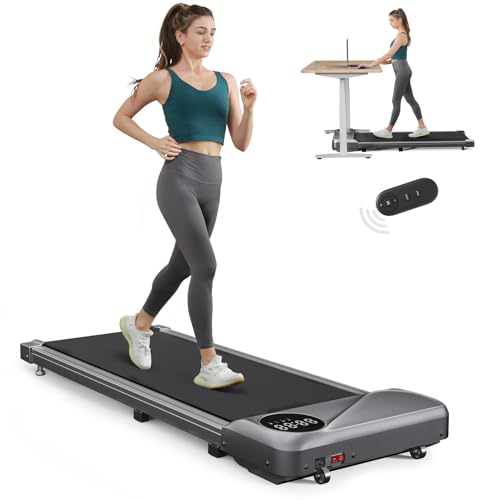There's A Good And Bad About Portable Running Machine
The Treadmill Machine: An Educational Guide to Your Fitness Journey
The treadmill machine has ended up being an indispensable tool in modern fitness routines. Whether click for more info is an experienced athlete or a newbie trying to get into shape, a treadmill provides a hassle-free and reliable method to accomplish fitness goals. This short article will check out the numerous elements of treadmill machines, their benefits, various types available, and standards for efficient use.
Advantages of Using a Treadmill
Treadmills use many physical and mental health benefits that add to total wellness. Some key advantages consist of:
- Cardiovascular Health: Regular usage of a treadmill helps in improving heart health by strengthening the heart muscles and enhancing flow.
- Weight reduction: By engaging in consistent cardiovascular exercises, individuals can burn considerable calories, helping in weight loss and management.
- Joint-Friendly Exercise: Treadmills offer a controlled environment that permits users to adjust speeds and inclines, making it simpler on the joints than working on difficult surfaces.
- Convenience: Treadmills are specifically helpful for those who live in areas with adverse climate condition, as they can be used inside your home year-round.
- Personalized Workouts: Many modern-day treadmills come equipped with programs and functions that enable users to personalize their exercises for varying strength levels.
Health Benefits Overview
Advantage
Description
Cardiovascular Improvement
Reinforces the heart, enhancing overall blood circulation and endurance.
Weight Management
Effective calorie burning resulting in weight loss.
Injury Prevention
Reduced threat of injury due to adjustable surfaces and controlled environments.
Motivation and Consistency
Offers an indoor alternative that motivates routine exercise no matter weather conditions.
Enhanced Mood
Regular workout adds to the release of endorphins, enhancing mental wellness.
Types of Treadmill Machines
While treadmills may seem simple, various types accommodate various requirements and preferences. Here are the main categories:
Manual Treadmills: These need no power and are propelled by the user's effort. They typically use up less area and are quieter but can present a steeper knowing curve for newbies.
Electric or Motorized Treadmills: The most typical type, they include automated programs for speed and slope. They are generally more flexible however require electrical energy to operate.
Folding Treadmills: Designed for those with restricted area, folding treadmills can be collapsed and saved away when not in usage, making them ideal for small apartment or condos.
Slope Treadmills: These machines use the capability to raise the slope, mimicing hill runs for a more efficient workout.
Commercial Treadmills: Built for heavy use, these machines are normally found in health clubs and gym and come with a variety of features and durability.
Contrast of Treadmill Types
Type
Power Source
Best For
Area Considerations
Handbook
None
Newbies, budget-conscious users
Low
Electric
Plug-in
Differed intensity workouts
Medium to High
Folding
Plug-in
Restricted space users
Low
Incline
Plug-in
Intense cardio and strength
Medium to High
Business
Plug-in
Regular gym usage
High
Tips for Effective Treadmill Use
To maximize the benefits of a treadmill regimen, here are several ideas to think about:
- Warm-Up: Start every workout with a 5-10 minute warm-up at a slow speed to prepare the body.
- Posture: Maintain an upright posture, keeping shoulders back and head up to avoid stress and injury.
- Period Training: Incorporate different speeds during workouts (high-interval training) to enhance cardiovascular fitness and burn calories.
- Use Inclines: To further boost exercises, add incline alternatives to simulate hill running, which develops strength in the legs.
- Stay Hydrated: Keep a water bottle close by, ensuring to consume in the past, during, and after workouts to remain hydrated.
Advised Treadmill Workouts
- Newbie's Walk: Start at a moderate pace for 20-30 minutes, gradually including speed as convenience increases.
- Hill Intervals: Alternate in between incline and flat surface areas, running uphill for 1 minute followed by walking for 2 minutes.
- Long-Distance Run: Target a stable speed for a prolonged period (40-60 minutes), focusing on endurance.
- Speed Training: Change speeds every minute, beginning with a light jog to brief bursts of running to improve speed and cardiovascular health.
Frequently asked questions
Q1: How typically should I use a treadmill for efficient results?
A1: It is typically recommended to use a treadmill at least 3 times each week for 30-60 minutes to see significant outcomes.
Q2: Can I reduce weight using a treadmill?
A2: Yes, with a mix of regular workout, a balanced diet plan, and portion control, utilizing a treadmill can contribute significantly to weight loss.
Q3: Do I need to warm-up before utilizing the treadmill?
A3: Yes, heating up is important to prepare your body, minimize the danger of injury, and improve workout efficiency.
Q4: Is running on a treadmill as efficient as running outdoors?
A4: Both have benefits, but a treadmill permits controlled environments, preventing weather-related interruptions, and might have less effect on the joints.
Q5: Can a treadmill assist with muscle structure?
A5: While mostly a cardiovascular tool, adjusting inclines can help engage and reinforce specific leg muscles.
Treadmill machines are flexible and can be an essential part of a fitness journey. By understanding the different types, advantages, and effective usage methods, individuals can tap into the full potential of this devices. Whether going for improved cardio health, weight management, or enhanced psychological well-being, a treadmill functions as a trusted buddy on the roadway to physical fitness.
